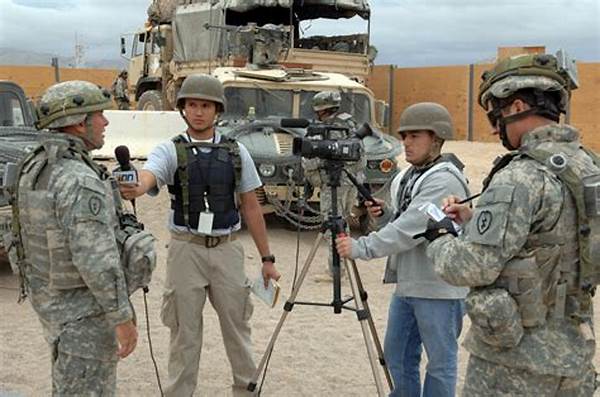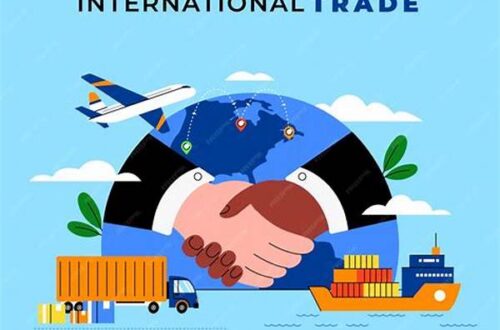Wartime correspondents play an essential role in delivering firsthand accounts of conflicts to the global audience. Their work provides vital insights into the realities faced by individuals on the front lines and informs the public and policymakers about the conflicts’ progress and humanitarian implications. However, the occupation is fraught with numerous challenges, and understanding these challenges is crucial in appreciating the complexity and importance of their work. This article discusses various challenges faced by wartime correspondents, exploring the unique difficulties and dangers inherent in this perilous profession.
Physical and Psychological Hazards
The challenges faced by wartime correspondents are manifold, and foremost among them are the physical and psychological hazards encountered in conflict zones. Correspondents often find themselves in the midst of active battlefields, where the risk of injury or death is ever-present. The stress of knowing that one’s life is constantly at risk can have a lasting psychological impact. Additionally, correspondents frequently witness scenes of violence and devastation, which can lead to post-traumatic stress disorder and other mental health issues. The need for vigilance in such unpredictable environments also contributes to sustained stress and potential burnout.
The challenges faced by wartime correspondents extend beyond personal safety to include logistical difficulties. Maneuvering through war zones often involves dealing with limited resources, obtaining necessary permits, and navigating complex political landscapes. Access to communication tools may be restricted or monitored, adding another layer of complexity to the task of accurate reporting. Despite these hurdles, wartime correspondents endeavor to deliver truthful accounts, often risking their lives to ensure that the world remains informed about the human cost of war.
Explanations of the Challenges Faced
1. Risk of Injury or Death: Wartime correspondents often work in dangerous areas where their safety is at risk. They face challenges in navigating regions affected by active hostilities, which can result in injury or death.
2. Psychological Strain: Persistently confronting traumatic events results in severe psychological challenges for wartime correspondents, including stress disorders and anxiety, which can affect their personal and professional lives.
3. Limited Access to Information: Obtaining accurate information in conflict zones poses a significant challenge. Restricted access and state-controlled narratives can impede the correspondents’ ability to report truthfully.
4. Legal and Political Barriers: Wartime correspondents encounter challenges related to laws and politics in war zones. They must navigate complex legal environments and sometimes face detention or censorship.
5. Resource Constraints: Operating in conflict zones is often marked by limited resources, making it challenging for correspondents to secure basic necessities such as food, shelter, and critical reporting equipment.
Ethical Considerations and Dilemmas
The challenges faced by wartime correspondents are not limited to physical dangers but also encompass ethical dilemmas. These journalists must continually make difficult decisions, balancing the need for truthful reporting with the potential consequences of their stories. Ethical challenges may include deciding whether to publish sensitive information that could endanger lives or whether to keep certain details out of the public domain to prevent further harm. Correspondents are often faced with the dilemma of protecting their sources while striving to maintain transparency and accuracy in their reports.
Balancing these ethical considerations requires a deep understanding of the conflict and a commitment to journalistic integrity. The impact of a correspondent’s story can have far-reaching implications, affecting public opinion, military strategies, and humanitarian efforts. As such, correspondents must approach their work with a sense of responsibility and awareness of the larger implications of their reporting. Despite these challenges, their role remains indispensable in providing an unfiltered view of war to the global community.
The Importance of Training and Support
Training and support are crucial in addressing the challenges faced by wartime correspondents. Comprehensive training programs prepare correspondents for the physical and psychological rigors of working in active conflict zones. These programs often include safety protocols, first aid, and measures to handle traumatic stress. Knowledge of the geopolitical and cultural landscape is also emphasized to help correspondents navigate complex environments effectively.
Moreover, post-deployment support is essential in mitigating long-term psychological effects. Media organizations must provide access to counseling and mental health resources to assist correspondents in processing their experiences. Such support systems are vital in ensuring the well-being of journalists, enabling them to carry out their work responsibly and sustainably. Recognizing the challenges faced by wartime correspondents and equipping them with requisite skills and resources is paramount in maintaining the flow of information from conflict areas.
The Role of Technology in Overcoming Challenges
The evolution of technology plays a pivotal role in addressing the challenges faced by wartime correspondents. Advanced communication tools and satellite technology enable correspondents to transmit information rapidly, even from remote locations. Social media platforms also provide immediate channels through which correspondents can share their reports and reach a global audience instantly.
Despite technological advancements, challenges persist, such as digital surveillance and cybersecurity threats, which can jeopardize the safety of correspondents and their sources. Therefore, mastery of digital security practices is crucial for journalists operating in conflict zones. Continuous technological adaptation ensures that wartime correspondents can maintain their critical role in providing real-time, accurate reports from the front lines.
Summary
In conclusion, the challenges faced by wartime correspondents are multifaceted, involving both physical risks and ethical considerations. Correspondents operate in some of the world’s most perilous environments, driven by a commitment to truth and the pursuit of justice through their storytelling. Striking a balance between thorough and ethical reporting amid these dangers is a constant challenge that requires both courage and integrity.
The importance of wartime correspondents cannot be overstated, as they play a critical role in informing the world about conflicts and their humanitarian implications. Supporting these journalists through training, technological support, and psychological care is essential in ensuring that they can continue to bring light to the harsh realities of war. As we acknowledge the sacrifices and challenges faced by wartime correspondents, it becomes imperative to support and safeguard them in their mission to provide transparency and accountability through their reporting.





